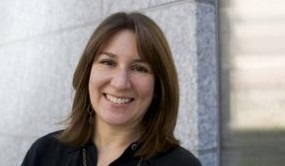BioNano Genomics Takes on $53M
Source: MedCity News
BioNano Genomics – a gene mapping startup focused on individual structural variations – gets $53M
 In this era of personalized medicine, individualized gene mapping is key – which is why San Diego startup BioNano Genomics’ Irys System just attracted a robust infusion of cash.
In this era of personalized medicine, individualized gene mapping is key – which is why San Diego startup BioNano Genomics’ Irys System just attracted a robust infusion of cash.
The company just completed a $53 million Series C round, with investments led by Novartis Venture Fund and Legend Capital. The dollars are meant to expand the company’s commercialization efforts.
Other participants include new investors Federated Kaufmann Fund and Monashee Investment Management, as well as existing investors Domain Associates, Battelle Ventures and Gund Investment Corp.
This Irys system lets researchers detect the structural variations – such as insertions, deletions, inversions, translocations and repeats – that make up individual gene variations. These, after all, wind up causing a number of diseases. Bradley Fikes over at UT-San Diego wrote up a nice profile last year of the company’s technology.
“We see genome mapping as a large, high-growth market that complements and broadens the sequencing market,” said Darren Cai, executive director of Chinese investment fund Legend Capital and new BioNano board member.
The company’s been attractive some pretty serious capital – prior to this investment, it’s raised more than $40 million in just the past two years.
Customers thus far include the Salk Institute, the National Cancer Institute, the NIH Intramural Sequencing Center and Genoscope, the French National Sequencing Center.
BioNano says:
BioNano’s Irys System is a long-read genome mapping solution that reveals the location, order and orientation of functionally relevant components of the genome, including the size and location of long repeats and integration sites, which are often implicated in complex diseases such as cancer. Irys finds all types of structural variations in a single assay, without prior knowledge of the variants. Previously, obtaining a comprehensive view of a genome was a major hurdle because existing tools such as next generation sequencing and arrays do not provide the scalability or reliability to detect, resolve and assemble large repetitive elements and structural variations.
“We will use this capital to accelerate global sales of Irys and to invest in next-generation innovation to address the untapped, multi-billion dollar genome mapping market,” CEO Erik Holmlin said in a release.




